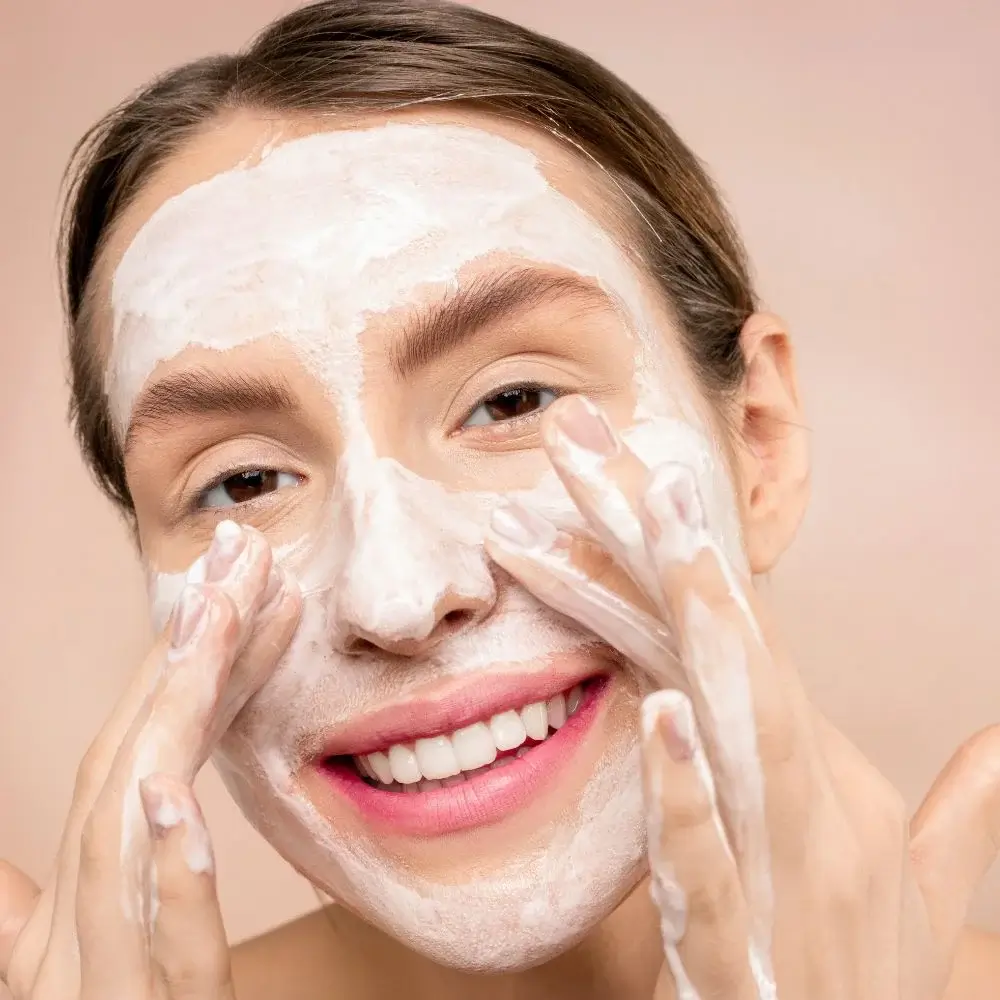When it comes to taking care of our skin, we often spend a significant amount of money on expensive skincare products to get that flawless, youthful glow. However, sometimes, nature has all the solutions we need to maintain healthy and radiant skin. One of these natural remedies is rice water. Used for centuries in Asia, rice water is known for its numerous skin benefits, especially when used as a face wash. In this blog post, we'll explain what rice water face wash is, how it benefits your skin, how to make it, and some precautions to take when using it.
What is Rice Water Face Wash?
Rice water is the starchy liquid left over after soaking or boiling rice. When used as a facial cleansing agent, it contains beneficial skin-loving components such as antioxidants, vitamins, minerals, and amino acids, which help to nourish, brighten, and firm the skin. The best part is that rice water is incredibly affordable and easily accessible.
Benefits of Rice Water Face Wash
Rice water face wash has numerous benefits for your skin's health and appearance. The antioxidants in rice water help to protect the skin from environmental damage by fighting free radicals that can cause premature aging. The vitamins and minerals help soothe, brighten, and improve the skin's overall complexion. Besides, rice water face wash can help to balance the skin's pH, which is crucial for maintaining a healthy skin barrier.
How to Make Rice Water Face Wash
Making rice water face wash at home is a simple process that requires only a few ingredients. Start by thoroughly rinsing one cup of rice to remove any dirt or impurities. Then, add the rice to a bowl with two cups of water and let it soak for around 30 minutes. Swirl the rice around in the water with your fingers, then strain out the rice and keep the water in a separate container. You can store the rice water in the fridge for up to a week and use it as a facial cleanser or toner morning and night.
Precautions When Using Rice Water Face Wash
Although rice water face wash is generally safe for most skin types, there are some precautions to take when using it. If you have sensitive skin, it's best to dilute the rice water with some plain water before using it on your face. Also, be cautious not to use rice water face wash too frequently, as this can disrupt the skin's natural moisture barrier and irritate it instead of nourishing it.
If you want to add a natural, affordable, and effective skincare remedy to your beauty routine, consider rice water face wash. It's easy to make at home, contains numerous skin-loving components, and is gentle enough for most skin types. Remember to use it sparingly and take the necessary precautions to get the best results. With continued use, you'll see improved skin texture, a brighter complexion, and healthier-looking skin.
Get ready to elevate your skincare routine to the next level with the ultimate solution: rice water face wash. in-depth research shows us the ideal product to help you achieve a glowing, youthful complexion that radiates health. Say goodbye to harsh, chemical-laden facial cleansers that strip your skin of natural oils. Embrace the power of rice water and witness the remarkable transformation. Unlock the secrets of centuries-old Japanese beauty rituals and indulge in this luxurious treat for your face. Follow the link now to discover your next favorite rice water face wash and the joys of radiant, luminous skin.
What is the ideal frequency for using rice water face wash?
The rice water face wash frequency depends on your unique skin type and specific skincare goals. Incorporating it into their skincare routine once or twice a week proves effective for most individuals. However, those with oily or acne-prone skin may benefit from more frequent use, up to three times a week. Conversely, individuals with sensitive skin should exercise caution, limiting usage to avoid potential irritation. It's essential to adjust the frequency based on how your skin responds, as everyone's skin reacts differently to skincare products.

What is the role of fermentation in rice water face wash?
Fermentation is a crucial process that enhances the efficacy of rice water face wash. Through fermentation, complex compounds in rice water are broken down into smaller, more bioavailable components. This transformation significantly increases the product's nutrient content and promotes better absorption by the skin. Consequently, fermented rice water offers several benefits, including improved skin hydration, a brighter and even more complexion, and enhanced skin health. Fermentation also contributes to the product's shelf stability, ensuring its longevity without harsh preservatives.

What are the common misconceptions about rice water face wash?
Several misconceptions surround rice water face wash. One prevalent belief is that it can completely replace your regular skincare routine. While rice water is a valuable addition to your skincare regimen, it is most effective as a supplementary step. It excels at deep cleansing, hydration, and providing essential nutrients to the skin. However, it is not a comprehensive replacement for other skincare products like moisturizers, serums, or sunscreen, which serve different purposes and offer a broader range of benefits.

How does rice water work to cleanse and moisturize the skin?
Rice water is a natural treasure trove of essential components, including vitamins, minerals, and amino acids, making it an excellent choice for cleansing and moisturizing the skin. When applied, it cleanses the skin by removing impurities, excess oil, and residual makeup, leaving the skin feeling fresh and revitalized. Simultaneously, rice water helps maintain the skin's moisture balance, preventing it from becoming overly dry or oily. Besides, its antioxidant properties protect against environmental stressors, contributing to a more youthful and supple complexion.

How can you customize rice water face wash for specific skin concerns?
Customizing rice water face wash allows you to target specific skin concerns effectively. For instance, to enhance moisture, consider blending rice water with honey, renowned for its exceptional hydrating properties. Alternatively, green tea can introduce other antioxidants, aiding skin protection and rejuvenation. If you have sensitive skin, adding aloe vera can offer soothing effects. Experimenting with these combinations empowers you to tailor rice water face wash to suit your needs, ensuring you receive the maximum benefits and comprehensively address your unique skin concerns.
Should I rinse my face with water after using rice water face wash?
Yes, it is crucial to rinse your face with lukewarm water after using rice water face wash. Rinsing is a vital step that ensures the complete removal of any residual product, impurities, and loosened dirt from your skin's surface. This thorough cleansing sets the stage for subsequent skincare products to penetrate and work their magic effectively. After rinsing, gently pat your face dry with a clean, soft towel and continue your regular skincare routine. This post-application step contributes to a more effective skincare regimen and promotes healthier, more radiant skin by maintaining its natural balance and integrity.







